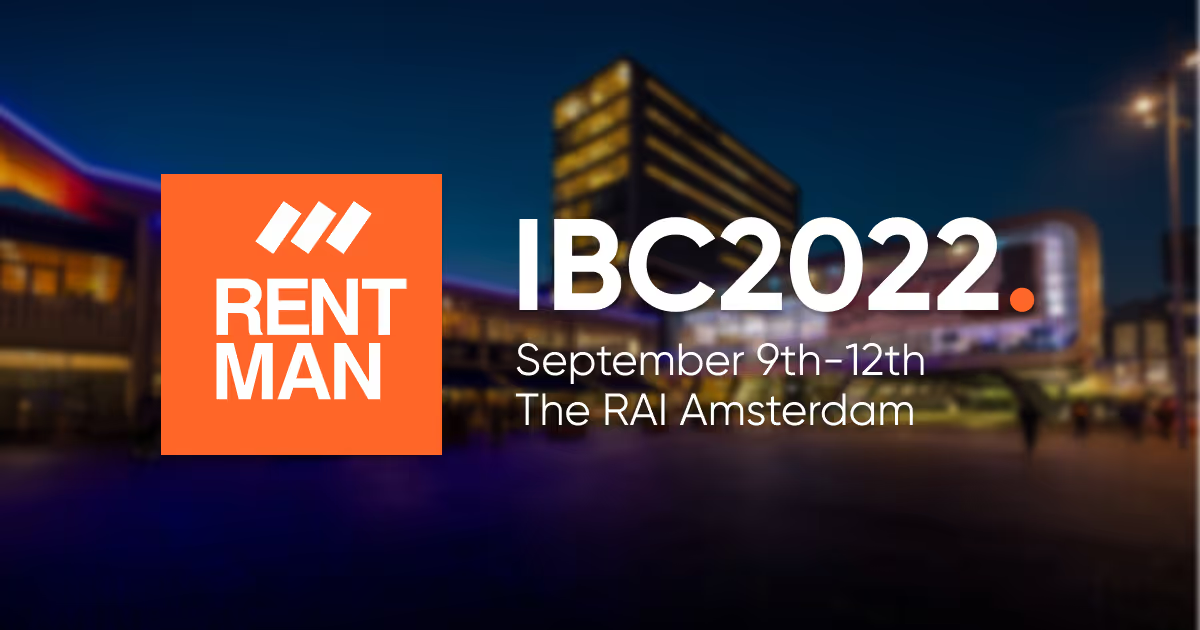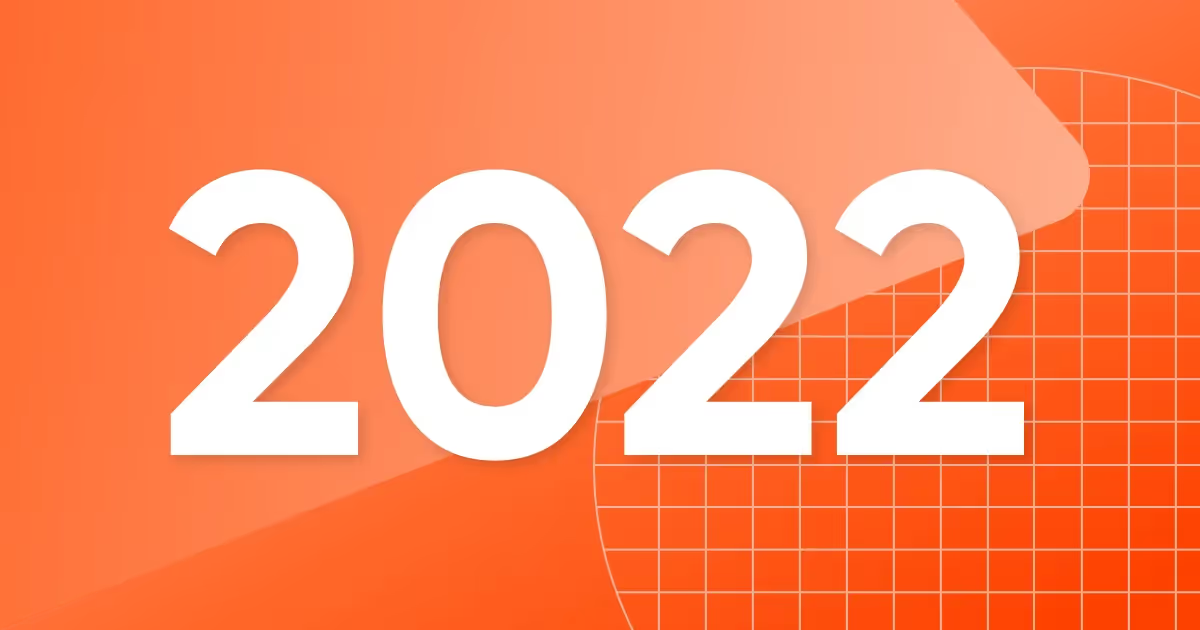4 benefits of RFID asset tracking for the event industry
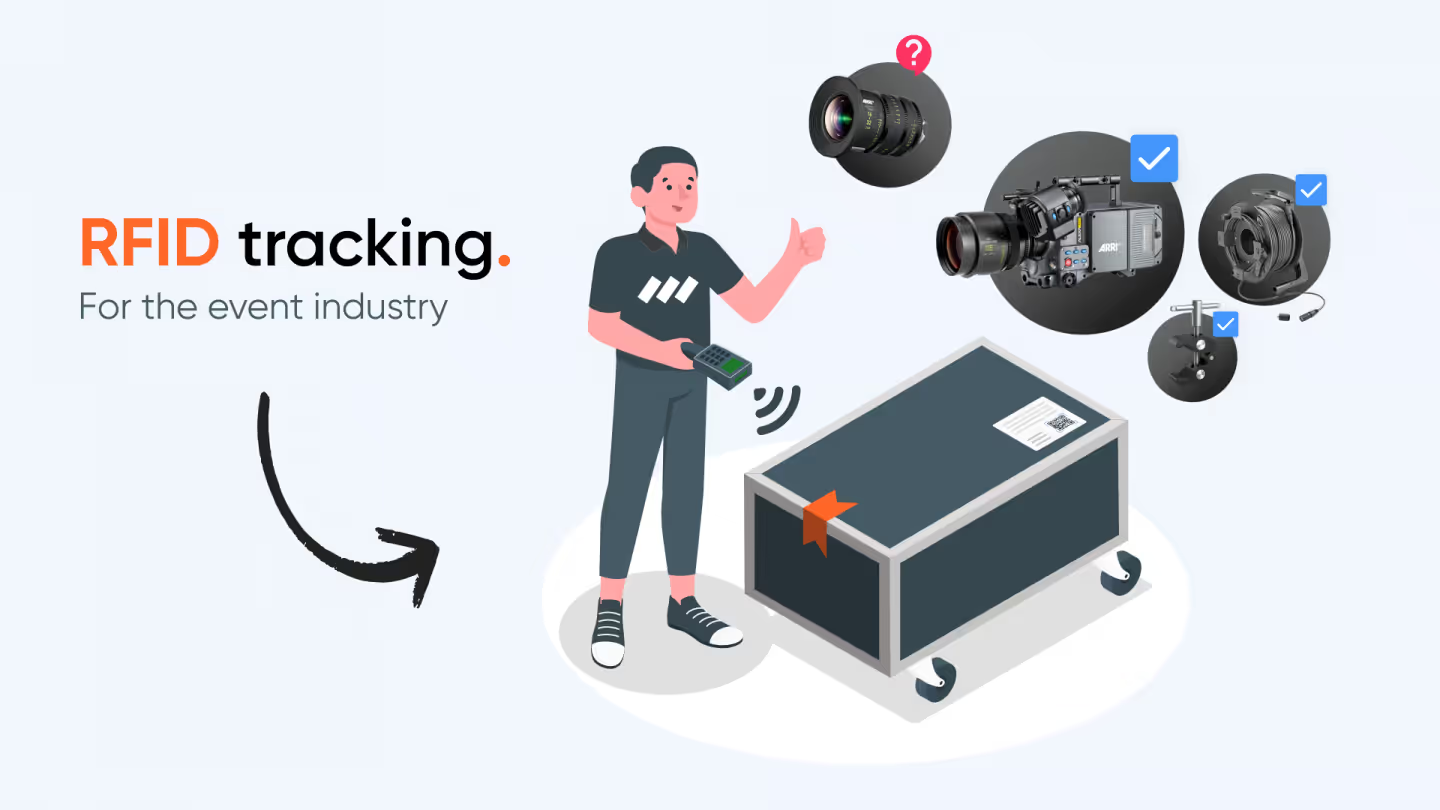
Are you working in the event, rental or media industry and handle large volumes of stock? Then you will definitely be interested in the benefits of RFID asset tracking.
Imagine being able to identify hundreds of different objects in seconds. This is the power of RFID, a state-of-the-art technology, particularly useful in asset management for companies in manufacturing, logistics, equipment rental, or other types of companies that deal with large volumes of stock.
Among many advantages, there are 4 benefits of RFID tracking that could greatly improve your warehouse processes:
- Reduced time spent tracking confirmed and returned stock
- Reduced operational costs
- Increased asset visibility and traceability
- Improved experience dealing with lost assets
But before we dive in, let’s find out how RFID actually works.
How does RFID work in the event industry?
For production and rental companies that deal with large volumes of stock, keeping an eye over every piece of equipment sent out in the field is often a challenge.
RFID asset tracking is a solution to improve the overview of equipment. It requires an RFID reader (which has an antenna and a transceiver) and an RFID tag (a transponder). Asset tags come in many sizes and forms, but they always contain an integrated circuit with a transponder chip inside, so that they can be detected by readers.
Essentially, RFID does not replace traditional manual scanning per se, but it complements it. It acts similarly, but it presents a greater advantage. RFID readers can automatically scan everything within a specified radius without the need to be in line-of-sight.
The benefits of RFID
Now we know what RFID is, let’s take a look at how you can improve your processes using this technology and what its benefits are.
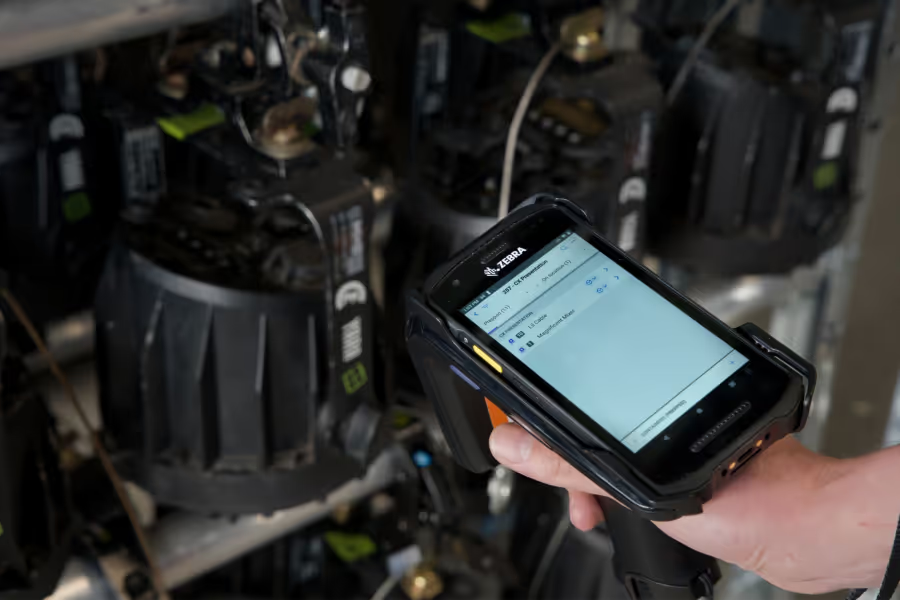
RFID lets you track items faster and more accurately
Let’s start with the most obvious benefit of RFID. It saves time. A lot of it.
Imagine you are a warehouse handler, and you’re supposed to prepare for 2 upcoming events. Let’s say that your planner left you some pretty long packing lists. These lists could consist of hundreds of different serialized items, which you have to manually scan. At the same time, these lists usually have non-serialized items as well, which are often grouped in bulk, making it difficult to keep track of.
While you’re frantically trying to pack everything up and get the order out the door, 5 large flight cases arrive with equipment from several locations – And it’s your job to sort them back and start packing for the next projects. Not fun, right?
Well, with RFID, the time-consuming and error-prone manual process of scanning barcodes will be eliminated. This is because RFID can identify items in a matter of seconds. Simply pick up your scanner and start scanning the prepped or returned flight cases. Much easier!
At Rentman, we were curious how much time RFID would actually save. Based on the practices of our customers, the results of our research were clear:
- Let’s take a look at 40 randomly selected items. A pro warehouse handler would manually scan everything in probably 30 seconds to 1 minute. Do you know how long it takes an RFID scanner to do this? 3 seconds. That’s magic.
- Let’s not forget about accuracy. When you have to deal with hundreds of different items every day, you might make some errors. We’re human, after all. Well, RFID is 18 times more accurate than traditional scanning.
RFID can reduce operational costs
Not only does RFID save time, it also reduces operational costs. Companies typically incur extra costs by having dedicated crew for inventory tracking. These costs can easily be avoided by having an RFID system in place, which could let the employees be assigned to other tasks that require more specialized skills. We could say that with RFID, you’ll only need 3 out of 4 crew members in your warehouse.
Don’t get it wrong – You don’t have to get rid of any crew member. RFID simply gives you and your crew more time to work on perfecting your productions.
What if you just landed a huge project, and you have to deliver hundreds of items to a location? Since this is an extremely important project, you’ll most likely want your crew as focussed as possible on designing the ‘back-end’ of the show, instead of having them scattered around in the warehouse manually scanning everything.

RFID increases asset visibility and traceability
Equipment rental companies often strive to improve two aspects of their business: visibility and traceability. By doing so, they can make sure no potential revenue is lost.
Oftentimes, equipment is booked way in advance, meaning that it can move from one location to another multiple times before a certain event takes place. This process, while combined with the multitude of items some companies handle, can lead to inefficient operations, as well as bottlenecks inside the rental chain.
RFID allows users to quickly identify which items require further investigation, as well as where they are, rather than having to manually search for them.
2 flight cases with cables are prepped and ready to go to the location; 3 flight cases just returned with electronics; several trusses are also ready to be inspected. You get the point. By scanning the tags inside cases using an RFID reader, you will have a better visibility and traceability of your assets, which could help your planners make decisions much faster.
Always know what assets are lost using RFID
In our business, losing equipment is part of the course. Why? Every time equipment changes location, mistakes can happen, especially for companies that keep track of thousands of items per week. That’s why companies typically have protocols in place to identify and replace lost items.
For companies that only have manual scanning operations in place, this means that they will only notice a lost item once they’re done scanning returns. This has to be followed up by someone who has to manually check the packing list to identify what item is missing.
With RFID, though, crew members can instantly check the number of items brought back by using an RFID scanner. If there are fewer items that came back, the scanner will typically be capable of showing what item is missing. This can be beneficial for bulk items, such as cables.
Manually scanning them takes time. This means that if one or more bulk items are missing, it can be extremely difficult to spot them, since they are not individually tracked. However, if companies can assign RFID tags to all bulk items, finding them afterward will become easier. It takes some time to set it up, but it will help you in the long run.
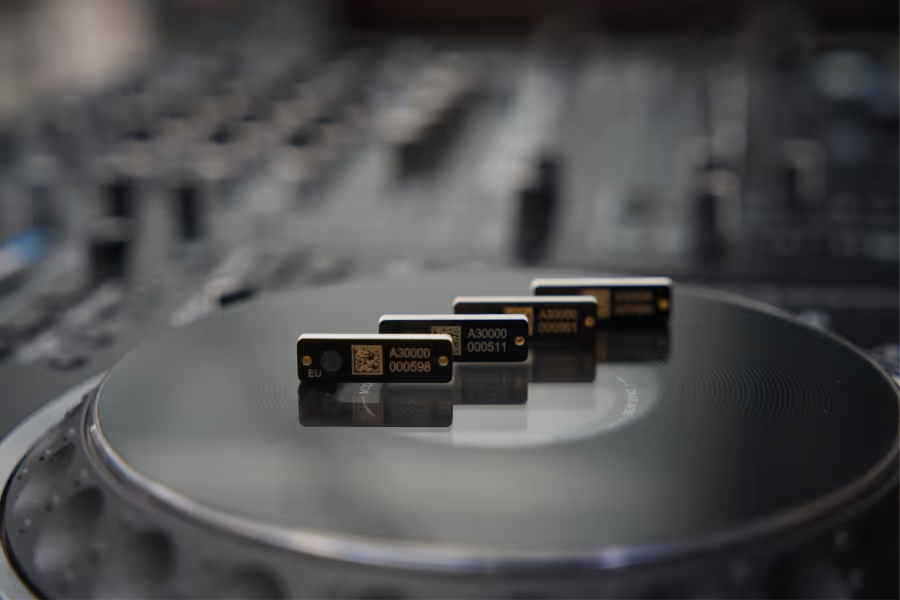
The bottom line
In the end, compared to traditional manual scanning, RFID has several advantages that can improve overall business operations and efficiency inside the warehouse. Especially for events, rental and media companies, as they are constantly dealing with a large flow of equipment between production locations.
At Rentman, we understand the challenges posed by dealing with inventory and maintaining a 360° degree overview. Rentman is a resource management and planning software for the AV & event, rental and media industries. We help companies manage their daily operations and improve their workflows, so they can deliver better productions and increase their profits.
We are currently in the process of developing RFID technology for our software. Do you want to see more insights from the industry or want to learn more about the challenges of developing this technology? Make sure to check out our Product Updates page, as well as follow us on LinkedIn to always stay up-to-date with our latest developments and studies.
Already interested in investing in RFID? If you want to have an idea of investment costs, feel free to visit our secondary domain, Geartracking.com, where you can browse RFID and QR scanning products.

